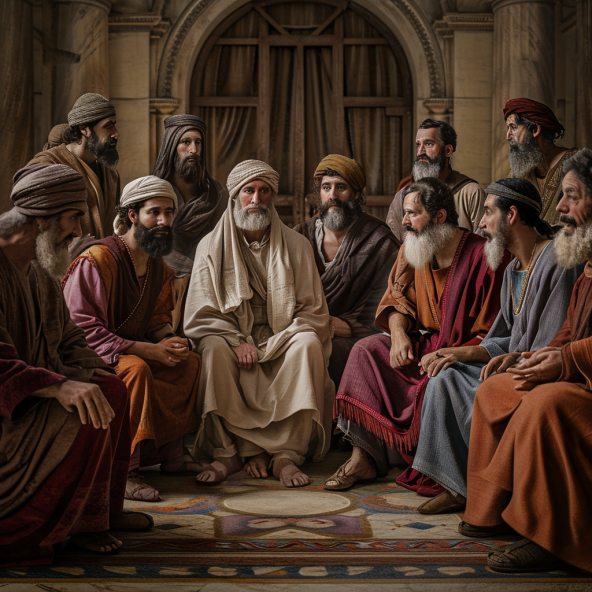The Gospel on Trial
Prayer of Preparation
By Your word, O God, Your creation sprang forth, and we were given the breath of life. By Your word, eternal God, death is overcome, Christ is raised from the tomb, and we are given a new life in the power of Your Spirit. May we boldly proclaim this good news, by the words of our mouths and the deeds of our lives, rejoicing always in your powerful presence; through Jesus Christ our risen Lord…Amen.
The Book of Common Worship

Sunday Scriptures from the Narrative Lectionary
When the Holy Spirit comes to Cornelius and his household in (Acts 10:44), the events leads to a watershed pronouncement among Jewish Christ-followers who hear about it: “God has given even to the gentiles the repentance that leads to life” (Acts 11:18) Following that scene, numerous gentiles, along with additional Jews, turn to Jesus Christ, with Luke’s narrative focus directed mostly on Paul and Barnabas’s ministry, and the vitality of the congregation where they spend much time, the church in Syrian Antioch.
As chapter 15 of Acts begins, we learn that a key consequence of the Holy Spirit’s arrival in Cornelious’s home---preaching intentionally directed toward gentiles by Peter---arouses controversy and tensions within the wider church, sparked by the concerns of some believers from Judea. No one disputes that gentiles can be saved, but some argue that there are terms or preconditions that matter for how their salvation becomes complete and makes them fully integrated with the rest of the church.
The question boils down to whether gentile converts are obligated to observe Jewish law in its entirety. The Book of Acts implies that Jewish members of the church remain at least partially Torah observant (e.g., Acts 10:14, 16:13, 18:18, 21:17-26), and so it makes sense that some of them would expect the same from gentiles.
This issue has broad ramifications, for it revolves around how the church determines whether a person enjoys full belonging in God’s salvation through Christ, and Him alone. It also asks whether gentiles might participate in that salvation differently than Jews do. We know from other ancient Christian writings that the outcome Acts describes---a declaration that gentile Christ-followers have no obligation to observe Torah as if they were Jewish---created significant dispute within the early church. Of course that outcome also shaped Christian living and theology up to the present day. It seems that even today some Christians ask the same question that the jailer asked in (Acts 16:30), “Sirs, what must I do to be saved?”
Acts 15 introduces the controversy as a dispute about circumcision. Unidentified people from Judea stir the pot, demanding that male gentile Christ-followers in Syrian Antioch undergo the ritual, otherwise they “cannot be saved.” Almost certainly the initiators are Jewish, and possibly Pharisee Christ followers. Their particular focus on circumcision might make the issue seem pertinent to only half the church’s membership, but requirements about circumcision would also affect women’s options about whom they could marry. Moreover, later we learn that the matter expands beyond circumcision: those that press the issue want the church to require that gentile Christ-followers “keep the Law of Moses,” presumably in its entirety (Acts 15:5).
In our preparation for worship this week, we can see that throughout church history, the Gospel message has always been under attack. Even today, there are Christ-followers (believers), trying to add to, or take away from the gospel message of salvation. Salvation, my friends, depends rather, wholly on “the grace of the Lord Jesus,” for Jewish and gentile Christ-followers alike.
Blessings on your preparation for worship! If you're interested in joining us in person for worship, find out details here.
To join us virtually on Sunday morning at 10am, use this YouTube link.
All are welcome!
Works Cited:
Matthew L. Skinner.
Acts: An Interpretation Bible Commentary.
Louisville, KY: Westminster John Knox Press, 2025.